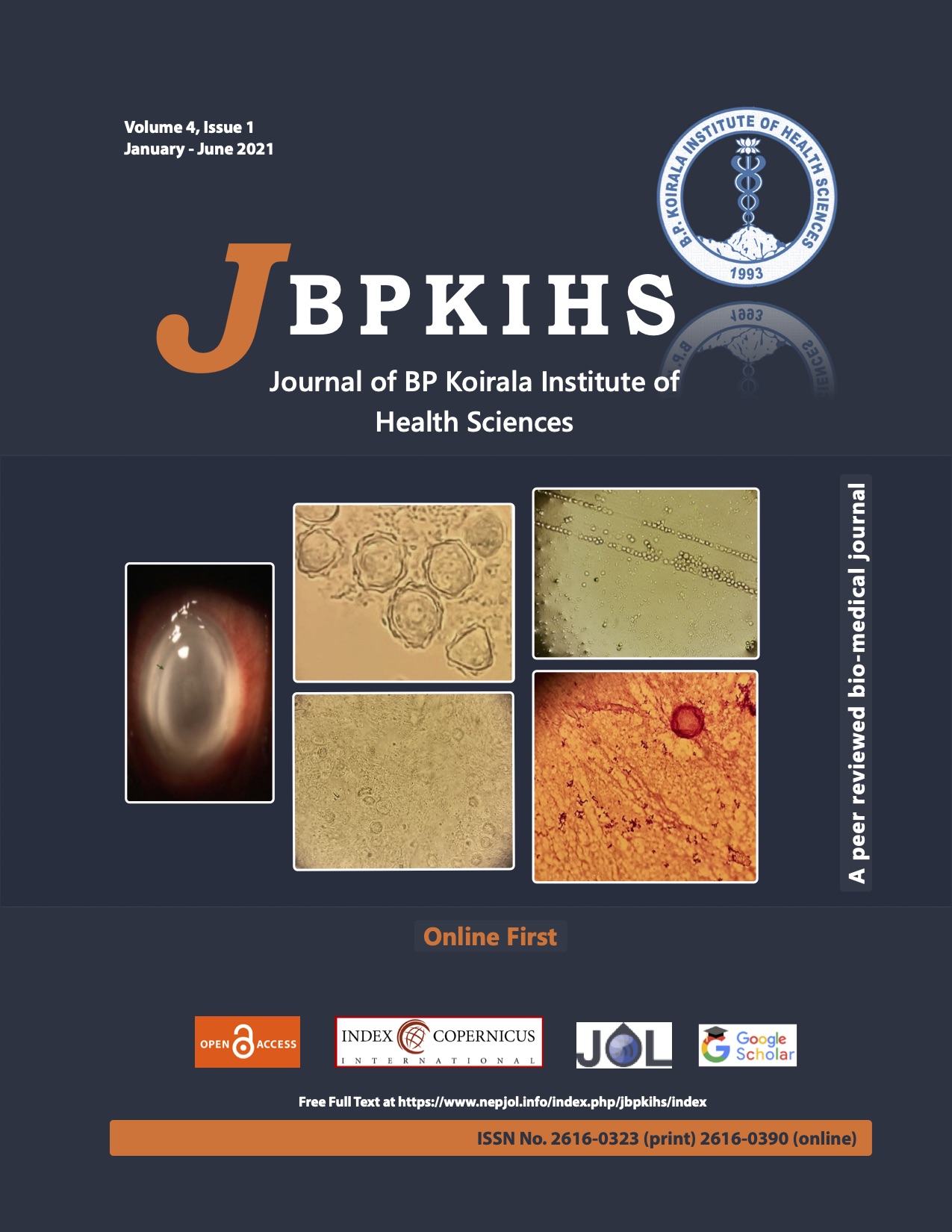Knowledge Regarding Care of Low Birth Weight Babies among Nurses Working in Pediatric Wards of a University Hospital in Eastern Nepal
DOI:
https://doi.org/10.3126/jbpkihs.v4i1.36101Keywords:
Knowledge, Nursing Care, Nurses, LBWAbstract
Background: Birth weight is the single most important factor determining a newborn’s survival chance. Recent development in neonatal care demands nurses to have updated knowledge regarding the care of low birth weight (LBW) babies. We aimed to assess the knowledge regarding care of LBW babies among nurses.
Methods: In this descriptive cross-sectional study, we enrolled 54 nurses working in pediatric wards of BPKIHS. To assess their knowledge regarding the care of LBW babies, a pre-tested self- response questionnaire was administered with focus on six domains: knowledge about care of LBW babies, the kangaroo mother care, adequacy of breast feeding, vaccination, bathing of LBW babies, and prevention of infection. The chi-square test was used to examine the association between different categorical variables and their knowledge.
Results: The majority (83%) had a Proficiency Certificate in nursing education, 11% had a Bachelor of Science in nursing education and only 6% had completed Bachelor in general nursing. More than half (55.6%) of the nurses had a job experience of 1-5 years. The overall knowledge score (mean ± SD) among the nurses on care of LBW babies was 86.5 ± 2.3. Nurses with Bachelor level of education had better knowledge score (85.5 ± 15.4) compared to those with proficiency level of education (75.1 ± 15.9) (p = 0.003).
Conclusion: The knowledge regarding the care of LBW babies among the nurses working in pediatric wards of BPKIHS seemed excellent. Knowledge was better in nurses with higher educational level.
Downloads
Downloads
Published
How to Cite
Issue
Section
License
This license enables reusers to copy and distribute the material in any medium or format in unadapted form only, for noncommercial purposes only, and only so long as attribution is given to the creator.




